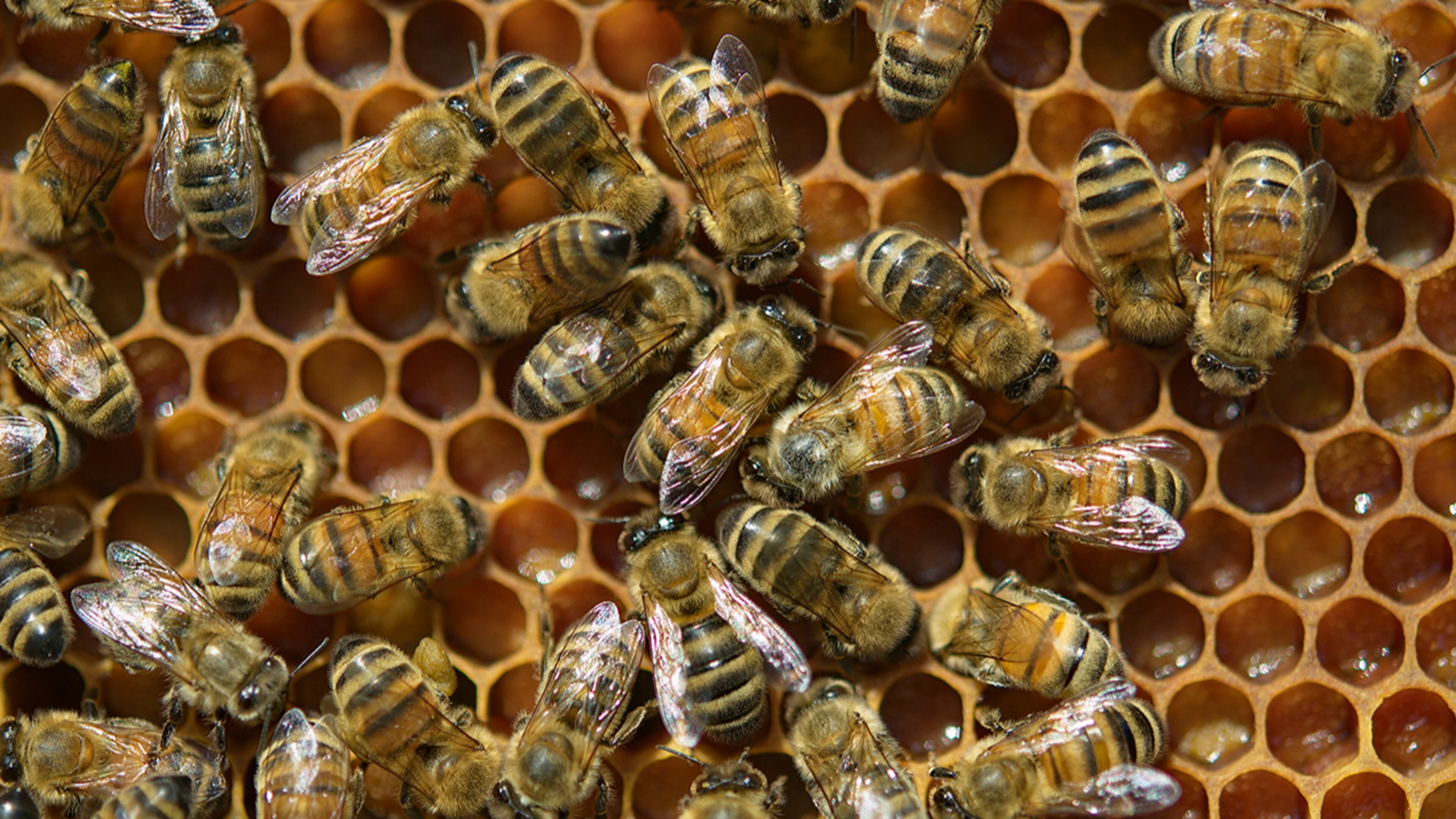Bees swarm, kill dog in Florida backyard: ‘They were relentless’

The scratches on the French doors that lead to Debbie Leonard's Boca Raton backyard and the slew of dead bees scattered on the floor are harsh reminders of something dog owners fear, but rarely expect.
“My kids won’t go in the backyard anymore,” said Leonard, a local realtor.
That’s where her 7-year-old dog, Delilah, was viciously swarmed by bees while roaming the backyard Wednesday. The dog died a day later.
There were so many bees, Leonard said, that her children, 15 and 19, feared opening the doors to the backyard when the pup tried to scratch her way in.
“She tried to hide,” Leonard said. “But everywhere she went, they followed. They were relentless.”
Leonard moved into the home, just east of Mizner Park on Northeast Sixth Street, in April. She hadn’t had any issues with bees until this incident.
Most likely the bees were "Africanized" -- a term that describes an aggressive breed of bee more likely to be agitated quickly and more aggressive than their more docile European counterparts.
Leonard was at work when the attack happened. But her children and a family friend were home and witnessed the ordeal.
“They’re traumatized,” she said.
The family took Delilah to a veterinarian, then to an emergency veterinary hospital in West Palm Beach.
More than 100 stingers were pulled from Delilah before she was stable, Leonard said. But the toxins made their way into her neurological system, and she had to be put down.
“She died while my daughter held her head,” Leonard said.
The Florida family hired a local beekeeper to scout the backyard. The beekeeper, Leonard said, determined there was a feral beehive near a property line shared with a neighbor to the east.
The bee hive was possibly disturbed by Delilah, prompting the bees to swarm.
The neighbor to the east keeps bees, according to Leonard and WPTV NewsChannel 5, which first reported the incident.
“I live behind Mizner Park. It’s not like I live in Loxahatchee,” Leonard said. “I don’t believe anyone should be able to keep hives in the city.”
There are no city codes barring beekeeping, and the state Department of Agriculture and Consumer Services regulates and inspects beekeepers.
Leonard, who also has a 10-year-old Rottweiler that was inside the home at the time, wants accountability and more state regulation of beekeeping in single-family neighborhoods.
“God forbid one of my kids was allergic to bees,” she said. “Those hives have got to go.”
Accidental encounters with Africanized hives have proven fatal to two Floridians and several pets in the past few years.
Bee stings killed a U.S. sugar worker in Clewiston, Florida, who accidentally disturbed a hive while on the job in December 2013.
In 2014, bees attacked a father and son in an industrial area of Fort Pierce, Florida, but the two managed to run to safety -- one shut himself in the cab of a parked truck.

